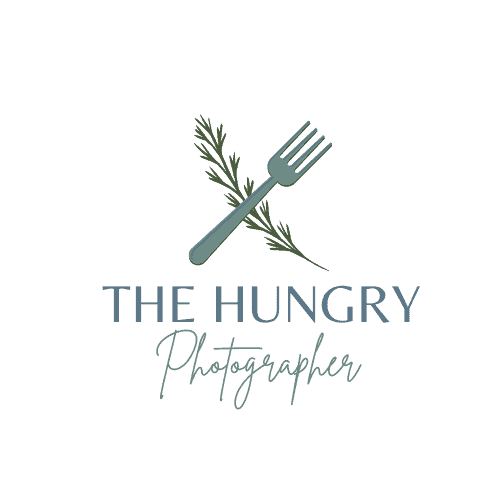Eudaimonia: The Pursuit of True Happiness

Have you ever come across the concept of “Eudaimonia” and wondered what it’s really about?
In the world of philosophy, amidst countless ideas, Eudaimonia is one that stands out in the test of time. It’s a Greek term that speaks to the essence of a fulfilled life, where one achieves their potential and lives virtuously. But what exactly is Eudaimonia, and why does it matter today?
Eudaimonia isn’t just a buzzword; it’s a timeless concept deeply rooted in ancient Greek thought. It’s about more than just feeling good; it’s about flourishing in every aspect of life. Throughout history, philosophers have grappled with its meaning and significance, shaping our understanding of what it means to live well.
Join me as we journey through the origins of Eudaimonia, follow its evolution through the eyes of different thinkers, and discover practical ways to embrace its principles for a truly fulfilling life. Let’s explore the path to genuine happiness and fulfillment together.
Historical Roots
The roots of Eudaimonia, traced back to ancient Greece, find sturdy grounding in Aristotle’s teachings. Unlike fleeting joy, Eudaimonia signifies enduring fulfillment through virtuous living and self-realization. Aristotle, in his Nicomachean Ethics, portrays Eudaimonia as the ultimate human goal, emphasizing virtues like courage, temperance, and wisdom. This holistic well-being entails striving beyond personal pleasure toward purpose and flourishing, nurturing intellect, character, and connections. Aristotle’s insights challenge us to seek fulfillment not in fleeting pleasures but in virtuous living and self-actualization.
Unlocking Eudaimonia: Keys to Flourishing
Eudaimonia, advocated by Aristotle and echoed in modern positive psychology, encompasses key dimensions essential for a flourishing life. Rooted in virtue and personal fulfillment, these dimensions provide a framework for lasting well-being.
Personal growth emphasizes continuous development, nurturing skills, knowledge, and character for purpose and fulfillment. Connection prioritizes quality relationships, fostering belonging and support amidst life’s challenges.
Purpose anchors individuals to meaning and direction, aligning actions with values for deep satisfaction. Autonomy underscores personal agency, allowing choices aligned with authenticity and empowerment.
Each dimension shapes a flourishing life: personal growth fosters self-discovery, connection cultivates support, purpose infuses meaning, and autonomy empowers choice.
Nurturing these dimensions leads to a deeper sense of well-being and fulfillment, transcending mere happiness for Eudaimonia – flourishing through virtuous living and self-realization.
.
Eudaimonia Pathways: Mindfulness, Connections, Values
Let’s make Eudaimonia relatable to our daily lives. Firstly, practice mindfulness: dedicate a few minutes each day to focus on your breath, enhancing clarity and grounding. Notice the sensations around you, whether it’s the warmth of sunlight or the sound of rustling leaves. This simple practice can help you stay present and centered throughout the day, making it easier to tap into your virtues.
Secondly, foster meaningful connections by spending quality time with supportive friends and family. Share laughs, stories, and meaningful conversations that uplift your spirits and strengthen your bonds.
Thirdly, align actions with values; reflect on what truly matters and act accordingly. Consider your core values – integrity, kindness, growth – and let them guide your decisions and interactions.
Next, set achievable goals that resonate with your vision of a fulfilling life. Break them down into small, manageable steps and celebrate your progress along the way.
Lastly, prioritize self-care: nourish your body with wholesome foods, move your body in ways that feel good, and indulge in activities that bring joy and relaxation.
Living Eudaimonia entails purpose and virtue, achieved through mindfulness, connections, aligned actions, goal-setting, and self-care. Embrace these practices for a life filled with fulfillment and joy. Let’s embark on this journey together, exploring the depths of Eudaimonia in our everyday experiences.
Eudaimonia: Life’s Ultimate Hack
Let’s dive into the wonders of Eudaimonia! Picture embarking on a journey toward a life filled with purpose, joy, and awesomeness. That’s Eudaimonia in a nutshell!
Imagine waking up each morning excited about the day ahead, living in alignment with your values, and striving towards your full potential. That’s the magic of Eudaimonia – your personal cheerleader, guiding you every step of the way.
Think of Eudaimonia as your secret weapon for unlocking a life of fulfillment and meaning. It’s like having a treasure map leading you to the pot of gold at the end of the rainbow. And guess what? You’re the hero, armed with virtues like courage, kindness, and wisdom.
Sure, life throws curveballs, but with Eudaimonia by your side, you’ll tackle them like a champ. Challenges become opportunities for growth and learning.
So, let’s raise our glasses (or mugs) to Eudaimonia – the ultimate life hack for living your best life. With its transformative power, there’s no limit to what you can achieve.
Today’s Conclusion: Eudaimonia offers a timeless philosophy for a fulfilling life. Rooted in ancient wisdom and championed by philosophers like Aristotle, it guides us to cultivate virtues, foster connections, and align our actions with our values. By practicing mindfulness, nurturing connections, and staying true to ourselves, we can cultivate a deeper sense of well-being and fulfillment. Let us embrace Eudaimonia’s principles, striving for excellence and creating a world where happiness and flourishing are within everyone’s reach. May our pursuit of Eudaimonia lead us to lives of profound fulfillment and happiness.
((Include two or three quotes in the layout.))
“The purpose of life is not to be happy. It is to be useful, to be honorable, to be compassionate, to have it make some difference that you have lived and lived well.” – Ralph Waldo Emerson
“The secret of happiness, you see, is not found in seeking more, but in developing the capacity to enjoy less.” – Socrates
“Happiness depends upon ourselves.” – Aristotle



